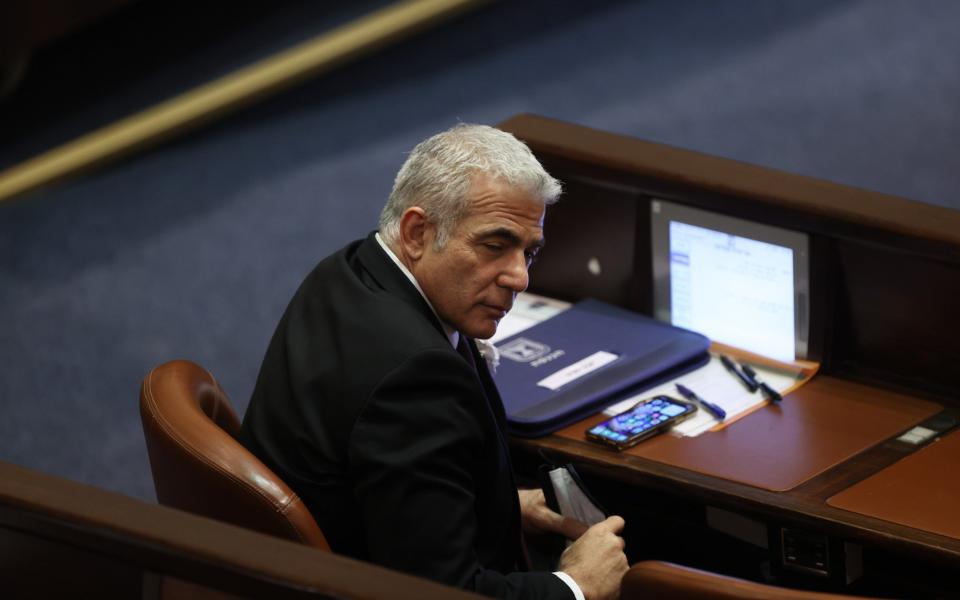What next for Israel's chaotic politics after Benjamin Netanyahu fails to form government?

Israel’s longest serving prime minister woke up to a throbbing political headache on Wednesday morning after his deadline to form a coalition government expired on Tuesday night.
Benjamin Netanyahu, who is fighting for his political survival amid a series of poor election results and a corruption trial, is now looking more vulnerable than ever.
The Right-wing Likud party leader had been asked to form a coalition by Israel’s president after the country’s fourth election in two years in March, which failed to produce a clear winner.
But after several fruitless weeks of coalition talks and backroom meetings, his deadline for forming a government expired at midnight on Tuesday, plunging his political career into deeper turmoil.
It is not the last straw for the embattled leader, who may yet be able to cling on to power if he finds more supporters in the coming days and convinces Reuven Rivlin, the Israeli president, to grant him an extension.
But his failure to find a 61-seat majority is delightful news for the so-called anti-Netanyahu bloc of left-wingers and centrists, who now hope to form their own alternative government.
Here we look at what is most likely to happen now that Mr Netanyahu’s deadline has expired, and whether there is any hope of ending the worst political deadlock in Israeli history any time soon.
Option 1: Netanyahu’s enemies try to form government
The next few weeks could get very busy for the anti-Netanyahu coalition led by Yair Lapid, the head of the centrist Yesh Atid party.
Israeli media reports say Mr Rivlin is poised to give Mr Lapid the next chance at forming a government within 28 days as his party came second, after Likud, in the March 23 polls.
This will not be easy, as the Lapid-led bloc does not currently have a 61-seat majority and would need to unite voices across the political spectrum against Likud, something it failed to do after the previous three elections.

Mr Lapid may turn his attention to Naftali Bennett, the leader of the right-wing Yamina party. Though Mr Bennett has expressed a preference for a Netanyahu-led government, he says he is prepared to cross the floor if it is the only way of avoiding a fifth election.
Mr Bennett has also stressed that he will always put the stability of the country ahead of his own party’s interests, which could potentially lead him to joining forces with Mr Lapid.
It may take a few days before Mr Rivlin formally announces a decision on whether to pass the mandate to Mr Lapid.
Option 2: Netanyahu gets more time
Mr Netanyahu may argue that he is, despite outward appearances, close to forming a government and that all he needs is a little more time.
According to Israeli news website Walla!, the Likud leader is considering this option though it is unclear how he would progress from there if the extension is granted.

The report was also denied by Mr Netanyahu’s office, and late on Tuesday night it was reported that Likud would not seek an extension.
In theory, Mr Netanyahu could secure a majority if he manages to convince both the far-Right Religious Zionism party and the leftwing Islamist party Ra’am to back him.
But they have both already ruled out this scenario, which suggests that if Mr Netanyahu were to gain an extension it may only defer the inevitable.
Option 3: Parliament decides
In the event that Mr Rivlin’s next nominee cannot find a majority, then the issue could be handed to the Knesset, the Israel parliament.
The Knesset would have three weeks to decide for itself as to who should be the next prime minister.

However, as the parliamentary arithmetic will remain unchanged, it is hard to see how this would lead to a breakthrough.
And if that fails, then Israel will be heading towards arguably the worst case scenario for its weary voters.
Option 4: Fifth election
In the absence of any other solution to the deadlock, Israel may have to call an election for the fifth time in just two and a half years.
The vote would likely be held in the late summer or autumn, allowing time for the main political heavyweights to consider reforging alliances or perhaps even breaking away to form new parties.
This is what happened before the March 23 election, which saw former Likud politician Gideon Sa'ar form his own right-wing movement, New Hope, that initially performed very strongly in the polls.
However, Mr Saar went on to secure only six seats in the March election, a sign that he was not regarded by the Israeli public as a credible right-wing alternative to Mr Netanyahu. A similar fate could befall other politicians who are tempted to make a dash for the crown.
In the meantime, Mr Netanyahu’s corruption trial continues, though he strongly denies all the charges. And his critics remain as convinced as ever that removing him from power is the only means of restoring stability to Israeli politics.

